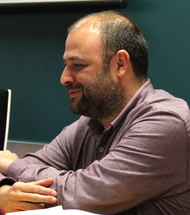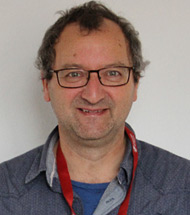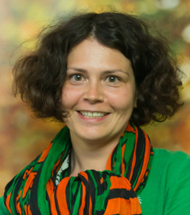Socotri: An ancient Yemenis oral language develops a written system in the twenty-first century
Leonid Kogan, a professor at Moscow’s Higher School of Economics, explained how a group of Russian linguists created this written system from Arabic within the framework of an ICS conference

FOTO: Elena Beltrán
The island of Socotra, part of an archipelago belonging to Yemen, is found in the Indian Ocean close to the tip of the Horn of Africa. It is a unique setting and since 2008 has been included on the list of UNESCO World Heritage Sites because of its enormous flora and fauna diversity. Among its riches, it has one intangible treasure, namely Socotri, an ancient Semitic language spoken by some 100,000 people and that, until a few years ago, was only transmitted orally between parents and children.
Recently, a group of Russian linguists, in collaboration with a group of local intellectuals, developed a writing system for this language based on the Arabic alphabet. The team includes Leonid Kogan, a professor at the Institute of Oriental and Classical Studies of Moscow’s Higher School of Economics.
The expert spoke of Socotri’s passage from orality to writing at an international conference on transitional texts organized by the Institute for Culture and Society (ICS) of the University of Navarra. This conference is part ofthe project ORFORCREA “Locked Between Formulas: Creativity through oral and transitional poetic texts,”led by Sarali Gintsburg within ICS’s Public Discourse project. ORFORCREA receives funding from the European Union’s Research and Innovation Horizon 2020 Program with a Marie Sklodowska-Curie Grant.
"The will to preserve and develop Socotri writing came from its native speakers on the island; they consider it an essential element of their ethnic and cultural identity. It was not imposed externally, but rather started with a social demand," according to Professor Kogan, who also indicated that, despite having few speakers, this language "has good future prospects."
Promotion and prestigeSocotri is related to Arabic, but they are very different, according to the specialist: "The languages have a level of mutual understanding similar to that found between English and Icelandic, that is, none." In spite of this, he adds that in a place in the Eastern world where the written word is “venerated,” the consideration of this oral language was so low that many believed it to be a dialect. "The development of a written system,” he continues, “has been decisive in the promotion of its prestige, which has grown enormously."
The expert points out that the writing system was based on Arabic, to which four elements were added to translate Socotri phonemes. But the main difficulty was not a matter of the alphabet: "The challenge was to develop a complex inventory of orthographic rules, writing rules for various morphological positions and for linguistic phenomena that are sometimes very complex."
The process is not yet finished. In 2014, the first book that systematically uses the new Socotri script was published and 85% has remained stable, while the rest is still in flux. "The second volume will be released in a few weeks and the writing is not yet 100% stable," Kogan notes. Thus, he points out that, "each new team meeting brings with it new developments that show evident progress."
Leonid Kogan emphasizes that, for a specialist in Semitic languages like him, Socotri is "a gold mine of discoveries" not only from a linguistic point of view, but also from cultural, poetic and even religious vantage points. "We have learned a lot from this culture that is original, isolated and archaic, and have found interesting parallels with the biblical world," he stresses. At last their popular traditions, stories and poetry in the local language can be translated into paper.
Literature of an Islamic religious nature"There is also a lot of demand for creating and publishing Islamic religious literature," he adds. This is important, since the population of the island has undergone a wave of Islamization since the 1990s, Kogan recalls, and until recently in many circles "the traditions and local language were perceived as opposed to ethical and social standards from Islam." Faced with this, Kogan mentions that, in Socotra’s intellectual circles "there is a growing feeling of rejecting the opposition; a balance between Arab and Islamic religious values and local tradition is possible.”
As an example, he mentions that one of his team members, a professor of Islamic sciences, has created a couple of religious compositions in Socotri and a rich inventory of local narrative tradition in line with Islamic orthodoxy.
According to Kogan, the next step is for native speakers to learn to write Socotri, both children at schools and the adult population. "If the political and social circumstances on the island permit it, which is a controversial issue, it is highly likely that the system will be adopted as an effective means for teaching. Political will is definitely needed to see this through, but this is not the task of our team." It is worth pointing out that circumstances in the Republic of Yemen are complicated with a civil war in which Saudi Arabia and Iran are involved.
This work has also had an impact in the research community, especially among academics who study languages related to Socotri. Leonid Kogan notes that, in Oman and Yemen, there are two other oral languages whose speakers are interested in them becoming written languages with an established orthography. These efforts keep alive the hope of preserving a legacy that belongs to all of humanity.





